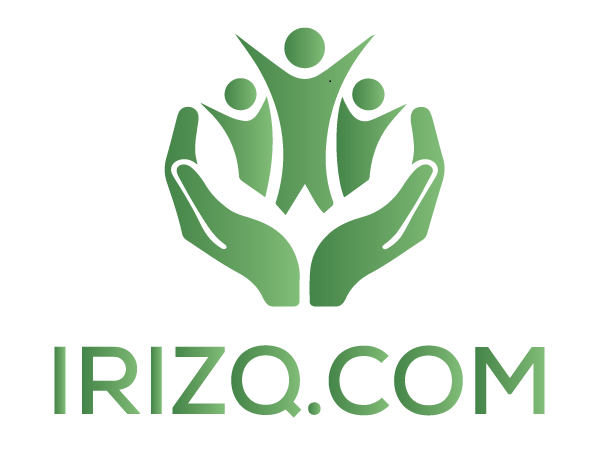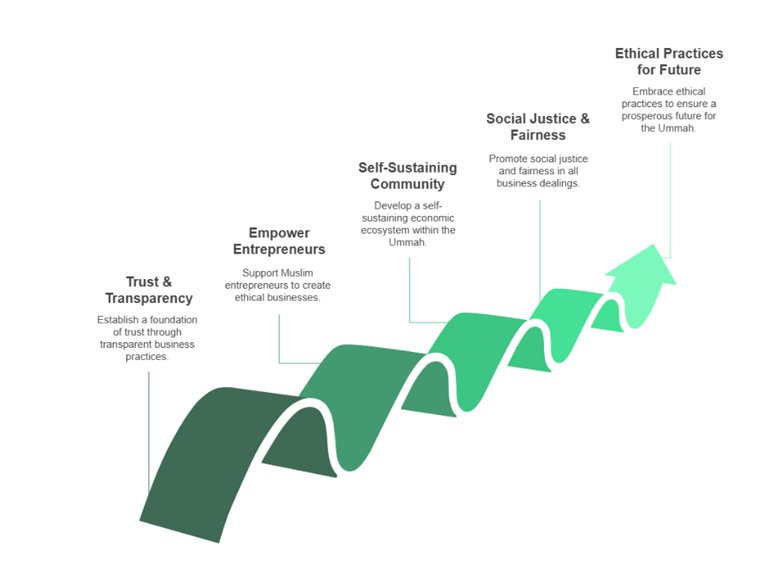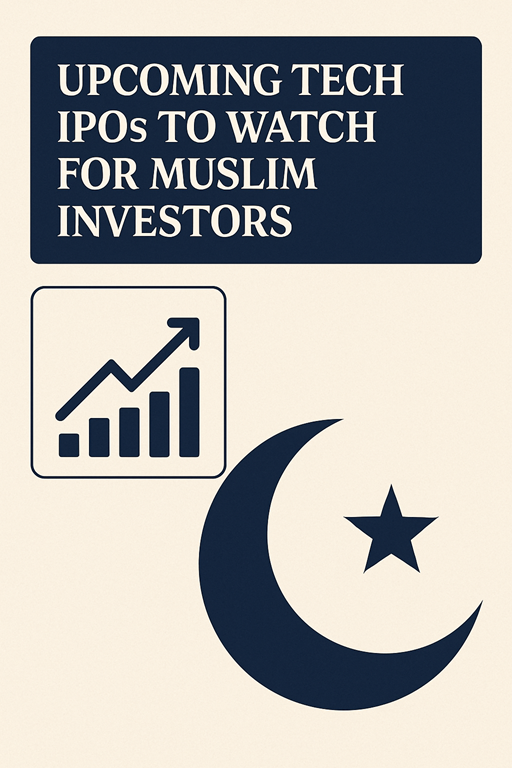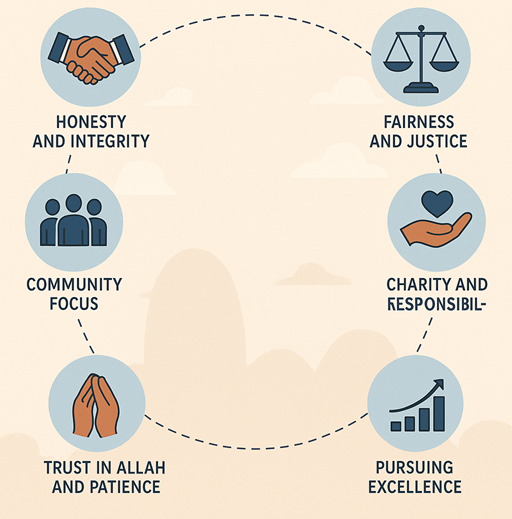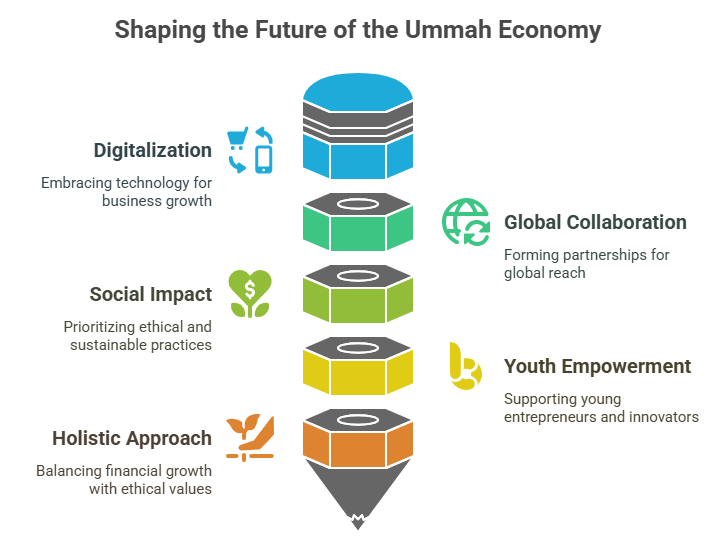The Ummah Economy can thrive by prioritizing ethical business practices—rooted in Islamic values of honesty, fairness, and social justice—to build trust, empower entrepreneurs, strengthen communities, and create a sustainable, prosperous future for all.
Bismillah!
In today’s fast-paced, profit-driven world, it’s easy to lose sight of the values that form the foundation of a prosperous society. However, within the Muslim community, there is an opportunity to lead by example and build a future where ethical business practices and shared values are at the core of economic development. The Ummah Economy has the potential to revolutionize how we do business by prioritizing honesty, justice, fairness, and transparency in every transaction.
Ethical business practices are not only about following rules or regulations; they are about creating a culture of integrity that benefits everyone in the community. By integrating ethical values into the business world, we can strengthen the Ummah’s economic base, uplift Muslim entrepreneurs, and ensure that wealth circulates within our communities to foster long-term prosperity. Let’s explore how adopting ethical business practices can revolutionize our economy and create a more sustainable and thriving Ummah.
A Foundation of Trust and Transparency
One of the primary benefits of ethical business practices is the trust they build within the community. Trust is the foundation of any successful economy, and in the Ummah Economy, it is even more essential. When businesses operate with transparency, fairness, and honesty, they cultivate loyalty from customers, partners, and investors alike. In a world where many business transactions are driven by profit alone, ethical businesses stand out by prioritizing moral responsibility over short-term gain.
For example, a halal business that is transparent about its financial dealings, pricing, and supply chain can build strong relationships with customers who share similar values. By offering fair wages to employees, practicing ethical sourcing, and adhering to environmentally friendly practices, these businesses set a powerful example for others to follow. This transparency creates an environment where businesses within the Ummah Economy grow with integrity, and the community can trust that their investments and purchases are supporting ethical enterprises.
Empowering Muslim Entrepreneurs
Ethical business practices not only foster trust but also empower Muslim entrepreneurs. When entrepreneurs make decisions based on Islamic principles of fairness and justice, they contribute to the well-being of the entire community. The Islamic finance model, for example, emphasizes interest-free transactions, ensuring that no one is unfairly burdened by debt. By promoting these ethical financial practices, Muslim entrepreneurs can build businesses that uplift their communities, rather than exploiting vulnerable populations.
Muslim entrepreneurs who integrate ethical business practices into their companies set themselves apart by offering services and products that contribute to social good. This creates an opportunity for Muslim consumers to support businesses that align with their values, which in turn encourages a shift toward ethical consumption within the community.
As Muslim businesses grow and thrive based on these principles, they create more opportunities for others. They can hire local talent, invest in community development projects, and offer resources to support the broader Ummah Economy. This cycle of ethical growth fosters a more sustainable economic ecosystem, where businesses do more than just turn a profit, they also contribute to the collective well-being of the community.
A Stronger, More Self-Sustaining Community
Adopting ethical business practices in the Ummah Economy has the potential to create a self-sustaining ecosystem. When businesses thrive through ethical means, the profits generated can be reinvested back into the community. This money can go toward funding Islamic schools, local mosques, charities, and social enterprises that benefit the most vulnerable members of the community.
Consider a scenario where a halal business generates enough revenue to give back to the community. This might mean donating a portion of profits to local Muslim charities, sponsoring youth programs that teach entrepreneurship, or funding scholarships for aspiring students. By keeping resources circulating within the Ummah, ethical businesses help create a virtuous cycle where wealth is continuously reinvested to support the economic and social development of the community.
As more halal businesses embrace ethical practices, the Ummah Economy grows in strength and sustainability. This encourages a shift away from traditional economic models that often prioritize individual gain over collective prosperity. In the Ummah Economy, everyone plays a role in ensuring the community’s success by choosing businesses that align with ethical values, we all contribute to building a stronger and more self-sufficient future.
Contributing to Social Justice and Fairness
An essential aspect of ethical business practices in the Ummah Economy is the promotion of social justice and fairness. By conducting business in a way that upholds Islamic values, we help create a society that cares for its most vulnerable members, whether they are the poor, the elderly, or those facing discrimination. Ethical business practices ensure that no one is taken advantage of, that all workers are paid fairly, and that everyone has access to opportunities for growth.
For example, a business that actively seeks to hire from underserved communities, pays its workers fair wages, and offers professional development opportunities can have a tremendous impact on reducing inequality within the community. Furthermore, when businesses operate ethically, they are more likely to support charitable causes, whether through donations, volunteer work, or corporate social responsibility initiatives.
In the Ummah Economy, businesses are not only concerned with financial success but also with making a positive impact on society. By choosing businesses that operate with integrity, we can collectively promote social justice and contribute to building a society where fairness and equity are prioritized.
A Call to Action: Embracing Ethical Practices for a Brighter Future
The success of the Ummah Economy hinges on each of us adopting ethical business practices and supporting those who do. Whether you are an entrepreneur, a consumer, or someone looking to invest, you can make a meaningful difference by prioritizing businesses that align with Islamic principles of honesty, justice, and integrity.
As consumers, we can choose to support halal businesses that operate ethically, helping to create a thriving, self-sustaining economy that benefits everyone. As entrepreneurs, we can commit to running businesses that contribute to the well-being of the community, ensuring that our economic success is also a reflection of our values. And as investors, we can choose to put our money into businesses that prioritize ethical investment, knowing that our choices will help create a more just and prosperous future for all.
By building a stronger Ummah Economy based on ethical business practices, we can create a future where wealth circulates within our communities, supporting growth, development, and empowerment for all. Together, we can ensure that our businesses not only thrive but also serve as beacons of justice, fairness, and integrity.
